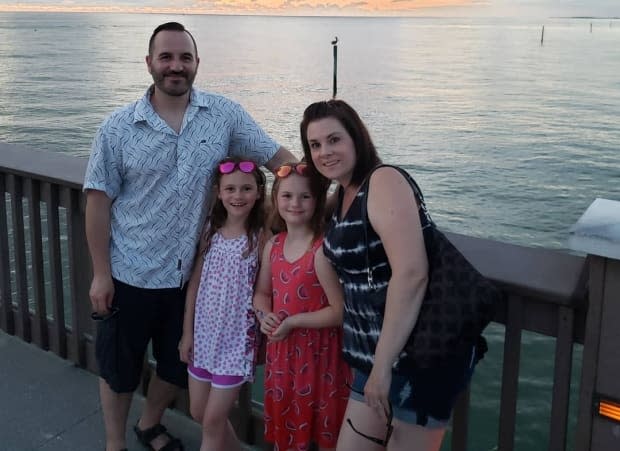Alberta needs to expand vaccine booster shot eligibility, some critics say

Alberta needs to expand its eligibility for COVID-19 vaccine booster shots to counter concerns about waning immunity, some critics say.
"I think it is vital for Alberta to be expanding eligibility, particularly as our R number is hovering around one," said infectious diseases physician Dr. Leyla Asadi.
"And we know that as the holidays approach, people are going to be having more contacts and that is going to be pushing our number above one," she said, adding that global data shows third doses are one of the best ways right now to limit spread.
The R-value is the average number of COVID-19 infections transmitted by each diagnosed case. An R-value above 1.0 means transmission is growing.
Currently, Albertans eligible to receive a third dose are seniors in congregate care settings, residents aged 70 or older, frontline health-care workers, people with certain immuno-compromising conditions, and First Nations, Métis and Inuit residents who are 18 years or older. People who received two doses of AstraZeneca, or one dose of Johnson and Johnson abroad, can also get a third dose.
The provincial government has not provided any more information about when it might expand eligibility or which Albertans will be next in line to receive third doses. In a statement to CBC News, an Alberta Health spokesperson only said that "discussions are ongoing" on the issue.
"Our current criteria for eligibility for third doses are in line with guidance from the National Advisory Committee on Immunization," said Michael Francoeur. "We'll share further information when decisions are made."
Other provinces have already expanded their eligibility criteria in ways that surpass Alberta's.
Since late October, everyone in Saskatchewan aged 65 years or older has been able to receive a third dose.
Earlier this month, Manitoba announced that everyone in the province who is at least 18 years old can receive a third shot. Dr. Joss Reimer, the medical lead of the province's vaccine task force, cited waning immunity for those most likely to suffer adverse outcomes from COVID-19 as one of the factors motivating the decision.
In all cases, people can only receive their third dose if it has been at least six months since their second shot.
"I think we just need to be acting sooner and more proactively," Asadi said.
She said while there is evidence that immunity is not waning as quickly here because of our longer time between doses, the province should assume, based on data from other jurisdictions, that immunity will decrease after six months.
"We should be assuming that there will be increased contacts and increased pressures, and we can benefit from people having that extra protection," Asadi said.
While health authorities including the World Health Organization have called for booster shots for specific populations, many experts say most vaccinated Canadians still have very good protection against COVID-19.
Immunologists and virologists also say it is normal for a person's antibody levels to decrease over time as their immune system develops more efficient antibodies that could fight the virus in the long term.
More information about rollout needed, teacher says
Sherwood Park high school teacher Scott Crosbie worries about potentially passing COVID-19 on to his family.
His wife Kristy is immunocompromised. She has received her third dose, and his two daughters, aged eight and 10, recently got their first.
But it has been six months since Crosbie received his second dose and he said he is concerned about his risk of contracting the virus at work.
"If we know that in a month or two months or whatever it is, we are going to start to see booster shots be rolled out to the greater population, then that at least gives us a calendar date that we can look forward to," he said, adding it is "incredibly stressful" to wait for that information.

NDP health critic David Shepherd said the province needs a plan for opening up access to booster shots.
"Follow the science and the evidence, and be ready for change in circumstances," he said. "We can't afford to have our province be caught off guard."
Crosbie said he wants the province to tell the public when it will expand third-dose eligibility.
"So that we at least know they are thinking about it, planning it," he said, "rather than being kept in the dark.
"I think that is the worst part of it all."
With files from Janice Johnston

 Yahoo Finance
Yahoo Finance 